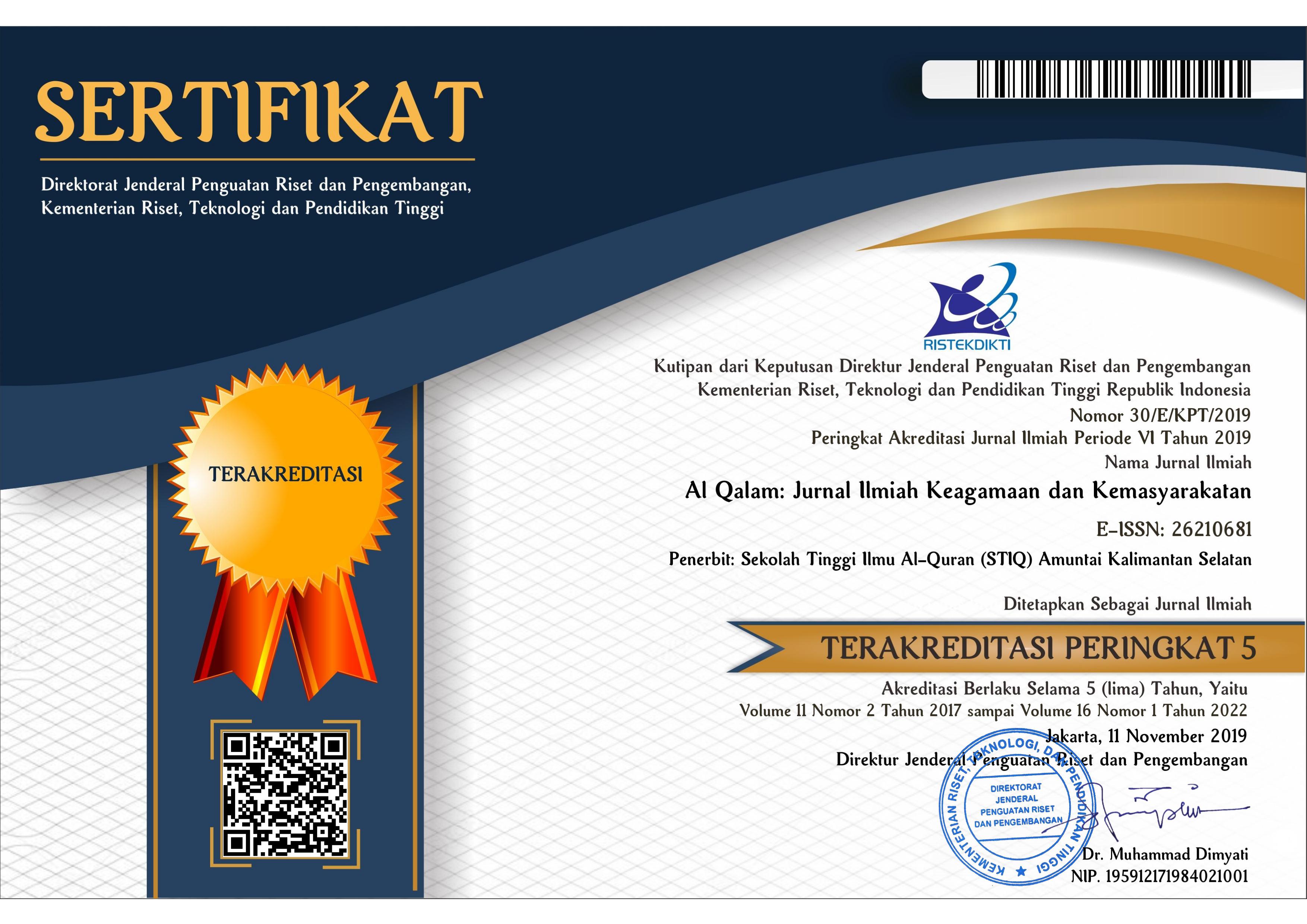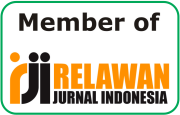Difusi Inovasi Teknologi Komunikasi pada E-Book dalam Belajar Mengajar: Sebuah Tinjauan Literatur Sistematis
Abstract
Penelitian ini menggunakan metode tinjauan literatur sistematik yang mengeksplorasi adopsi dan penggunaan e-book dalam konteks belajar-mengajar. Penelitian ini mengkaji karakteristik dan keunggulan e-book, serta tantangan dan hambatan dalam pengadopsiannya. Kajian ini juga menerapkan teori difusi inovasi untuk memahami bagaimana e-book diadopsi dan digunakan dalam proses pembelajaran. Hasil penelitian menemukan bahwa e-book menawarkan banyak keunggulan dibandingkan buku teks tradisional, seperti fitur multimedia dan interaktivitas, tetapi pengadopsiannya tidak universal karena faktor-faktor seperti kenyamanan pengguna, kurangnya pengetahuan dan kepercayaan diri, dan preferensi untuk buku cetak. Selain terkait adopsi e-book dari perspektif pengguna dan pembaca, beberapa literatur ditemukan membahas pengelolaan dari perspektif pustakawan. Tinjauan menyimpulkan bahwa memahami faktor-faktor yang mempengaruhi adopsi e-book dapat membantu pendidik dan institusi untuk lebih mengintegrasikannya ke dalam proses pembelajaran.
Keywords
Full Text:
PDFReferences
Aharony, Noa, dan Judit Bar-Ilan. “Students’ academic reading preferences: An exploratory study.” Journal of Librarianship and Information Science 50, no. 1 (2018): 3–13.
Armstrong, Chris. “Books in a virtual world: The evolution of the e-book and its lexicon.” Journal of Librarianship and Information Science 40, no. 3 (2008): 193–206.
Ashcroft, Linda, dan Chris Watts. “Change implications related to electronic educational resources.” Online Information Review 28, no. 4 (2004): 284–91.
Chiang, Hsiu-Sen, dan Chia-Chen Chen. “Exploring switch intention of users’ reading behaviour: An e-book reader case study.” The Electronic Library 32, no. 4 (2014): 434–57.
Hillesund, Terje. “Will e-books change the world?,” 2001.
Jayasundara, Chaminda. “Adoption of electronic books in a higher education setting: an exploratory case study based on Diffusion of Innovation and Garner’s Hype Cycle paradigms.” Annals of Library and Information Studies (ALIS) 68, no. 3 (2021): 258–67.
Kaminski, June. “Diffusion of innovation theory.” Canadian Journal of Nursing Informatics 6, no. 2 (2011): 1–6.
Kristensen, Linn-Birgit, dan Marika Lüders. “Convenient and worth the price? Identifying early users and predicting future use of book streaming services.” Convergence 29, no. 1 (2023): 183–200.
Liao, Yongxin, Eduardo Rocha Loures, Fernando Deschamps, Guilherme Brezinski, dan André Venâncio. “The impact of the fourth industrial revolution: a cross-country/region comparison.” Production 28 (2018).
Littlejohn, S W, K A Foss, dan J G Oetzel. “Theories of Human Communication. USA: Waveland Press, INC,” 2016.
Littlejohn, Stephen W, dan Karen A Foss. Encyclopedia of communication theory. Vol. 1. Sage, 2009.
Liu, Ziming. “Reading behavior in the digital environment: Changes in reading behavior over the past ten years.” Journal of documentation 61, no. 6 (2005): 700–712.
Oliveira, Silas Marques De. “E‐textbooks usage by students at Andrews University: A study of attitudes, perceptions, and behaviors.” Library management 33, no. 8/9 (2012): 536–60.
Page, Matthew J, Joanne E McKenzie, Patrick M Bossuyt, Isabelle Boutron, Tammy C Hoffmann, Cynthia D Mulrow, Larissa Shamseer, Jennifer M Tetzlaff, Elie A Akl, dan Sue E Brennan. “The PRISMA 2020 statement: an updated guideline for reporting systematic reviews.” International journal of surgery 88 (2021): 105906.
Qazi, Wasim, Syed Ali Raza, dan Nida Shah. “Acceptance of e-book reading among higher education students in a developing country: the modified diffusion innovation theory.” International journal of business information systems 27, no. 2 (2018): 222–45.
Quan-Haase, Anabel, Kim Martin, dan Kathleen Schreurs. “Not all on the same page: e-book adoption and technology exploration by seniors.” Information Research: An International Electronic Journal 19, no. 2 (2014): n2.
Raynard, Melissa. “Understanding academic e-books through the diffusion of innovations theory as a basis for developing effective marketing and educational strategies.” The Journal of Academic Librarianship 43, no. 1 (2017): 82–86.
Rogers, Everett M, Arvind Singhal, dan Margaret M Quinlan. “Diffusion of innovations.” Dalam An integrated approach to communication theory and research, 432–48. Routledge, 2014.
Sargeant, Betty. “What is an ebook? What is a book app? And why should we care? An analysis of contemporary digital picture books.” Children’s Literature in Education 46 (2015): 454–66.
Singh, Ms Rashmi Dongre Mr Dheeraj. “Impact of Digital Technology on Print Media....,” 2018.
Smyth, Sarah, dan Andrew P Carlin. “Use and perception of ebooks in the University of Ulster: a case study.” New Review of Academic Librarianship 18, no. 2 (2012): 176–205.
Song, Sandra. “The digital challenge for the book industry: a viewpoint of Frankfurt Book Fair.” New Library World 113, no. 7/8 (2012): 343–50.
Subba Rao, Siriginidi. “Electronic books: a review and evaluation.” Library Hi Tech 21, no. 1 (2003): 85–93.
Sun, Li, dan Cheng En Pan. “Effects of the application of information technology to e-book learning on learning motivation and effectiveness.” Frontiers in psychology 12 (2021): 752303.
Waheed, Mehwish, Jane E Klobas, dan Kiran Kaur. “The importance of actual use in defining and measuring innovative behaviour: Comparison of e-book reader users and non-users.” Journal of Librarianship and Information Science 49, no. 4 (2017): 368–79.
Weng, Cathy, Sarah Otanga, Apollo Weng, dan Joanne Cox. “Effects of interactivity in E-textbooks on 7th graders science learning and cognitive load.” Computers & Education 120 (2018): 172–84.
Xiao, Yu, dan Maria Watson. “Guidance on conducting a systematic literature review.” Journal of planning education and research 39, no. 1 (2019): 93–112. https://doi.org/10.1177/0739456X1 77239.
DOI: http://dx.doi.org/10.35931/aq.v18i2.3387
Refbacks
- There are currently no refbacks.
Copyright (c) 2024 Nenda Pratiwie S

This work is licensed under a Creative Commons Attribution 4.0 International License.
Al Qalam: Jurnal Ilmiah Keagamaan dan Kemasyarakatan
index by:
Publish by:
Sekolah Tinggi Ilmu Al-Qur'an Amuntai
Contact us:
Address: Jl. Rakha Pakapuran, Amuntai Utara
Kabupaten : Hulu Sungai Utara
Kode Pos : 71471
Provinsi : Kalimantan Selatan
Telephone : 085251613000
Email: hafizhihusinsungkar@gmail.com

This work is licensed under a Creative Commons Attribution 4.0 International License


